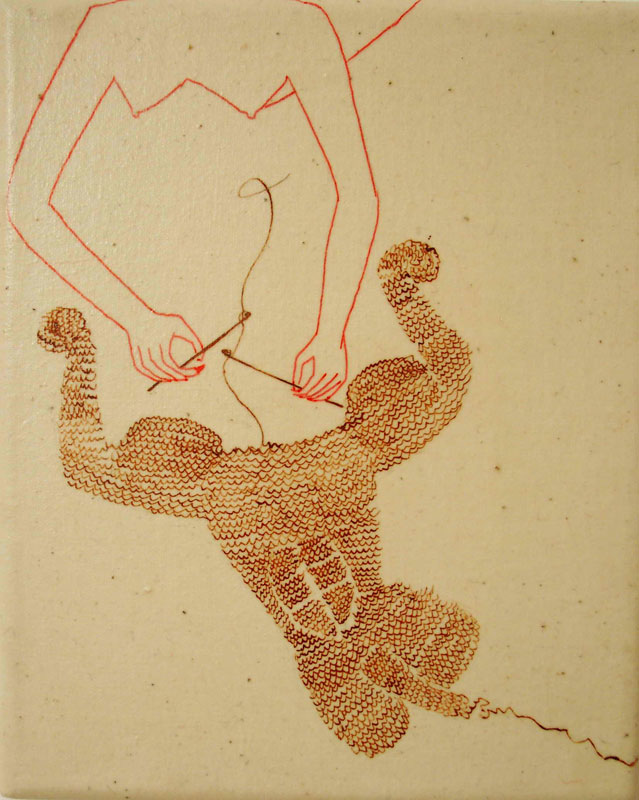 |
Hypnos
by Iker Spozio* | |
|
I woke up too early yesterday morning; not unusual. And I worried. The tension in this scene arose from my wondering if I'd be able to fall back to sleep or if I'd have to soldier through the day on five hours.
Then in a blip of time I was gone, swept into a cavern, a chamber, an infinite joining with my other community--of near hallucination which shadows my life, distorts it or riffs on it.
And then I was awake and rested. Three hours of deep sweet sleep, or transitory death, had passed. I had gone somewhere and I had been returned.
Here is a poem by W.H. Auden. It might be relevant to what I just wrote.
PrimeSimultaneously, as soundlessly,
Spontaneously, suddenly
As, at the vaunt of the dawn, the kind
Gates of the body fly open
To its world beyond, the gates of the mind,
The horn gate and the ivory gate
Swing to, swing shut, instantaneously
Quell the nocturnal rummage
Of its rebellious fronde, ill-favoured,
Ill-natured and second-rate,
Disenfranchised, widowed and orphaned
By an historical mistake:
Recalled from the shades to be a seeing being,
From absence to be on display,
Without a name or history I wake
Between my body and the day.
Holy this moment, wholly in the right,
As, in complete obedience
To the light's laconic outcry, next
As a sheet, near as a wall,
Out there as a mountain's poise of stone,
The world is present, about,
And I know that I am, here, not alone
But with a world, and rejoice
Unvexed, for the will has still to claim
This adjacent arm as my own,
The memory to name me, resume
Its routine of praise and blame,
And smiling to me is this instant while
Still the day is intact, and I
The Adam sinless in our beginning,
Adam still previous to any act.
I draw breath; that is of course to wish,
No matter what, to be wise.
To be different, to die and the cost,
No matter how, is Paradise
Lost of course and myself owing a death:
The eager ridge, the steady sea,
The flat roofs of the fishing village
Still asleep in its bunny,
Though as fresh and sunny still, are not friends
But things to hand, this ready flesh
No honest equal, but my accomplice now,
My assassin to be, and my name
Stands for my historical share of care
For a lying self-made city,
Afraid of our living task, they dying
Which the coming day will ask.
____
W. H. Auden, 1907-1973
Hypnos, by artist Iker Spozio, from http://www.folioart.co.uk/illustration/folio/artwork/hypnos/






